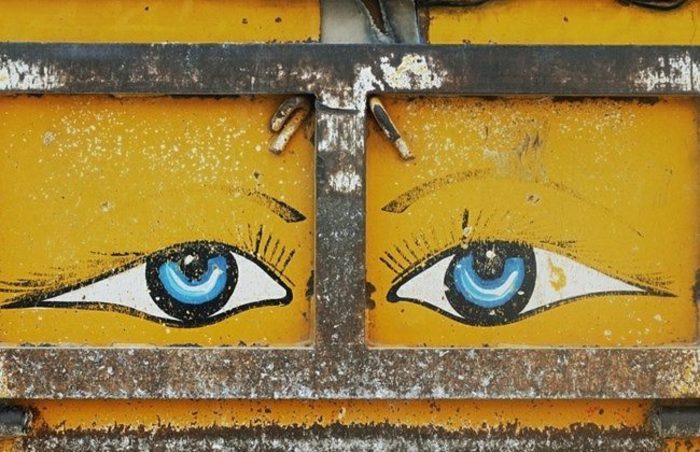Al-Solaim and Loewenthal (2011)
 The following study can be used to support the role of religiosity in shaping OCD symptoms, and the importance of traditional beliefs such as the evil eye.
The following study can be used to support the role of religiosity in shaping OCD symptoms, and the importance of traditional beliefs such as the evil eye.
Various studies have examined links between OCD, Catholicism, and other types of Christianity, but fewer studies had looked at the role of religiosity in people of other faiths, i.e. Muslim or Hindu.
Tight cultures are those in which social norms are clearly defined and reliably imposed, leaving little room for individual improvisation and interpretation.
Loose cultures are those in which social norms are flexible and informal. They propose expectations but permit individuals to define the range of tolerable behavior within which they may exercise their own preferences.
The following study took place in Saudi Arabia, a tight culture with strict rules governing behaviour, especially for women. For example, the majority of women wear face-coverings. A small minority only cover their hair, but this is generally frowned upon in public places.
The study explored how religious observance contributes to the expression of obsessive-compulsive symptoms in young women in Saudi Arabia. Furthermore, the study examines help-seeking in this sample, i.e. who do people turn to for support.
The sample was made up of 15 Saudi women, aged 14 - 30. All were diagnosed with OCD and had been exhibiting religion-oriented symptoms since before the age of 21. Interviews were semi-structured, conducted in Arabic, and lasted 60-90 minutes. Open-ended questions were asked about the extent and duration of symptoms they had been experiencing and how these were affected by their religion. Written records were made since due to cultural sensitivities, video and audio recordings were deemed inappropriate. Notes were translated from Arabic to English and thematic analysis was performed to identify themes in the interviews.
All participants initially sought help from faith healers, who read to them from the Quran and gave them holy water to drink and oil to anoint their bodies. Most interviewees believed the "evil eye" had caused their symptoms. Once referred to psychiatric services, participants accepted a biological explanation, but still believed the evil eye caused the biological changes that triggered the disorder. This is portrayed in the following quotes.
- My family understands, they know that [my] obsessionality is caused by Satan, but they still believe I should take the pill, and also, read verses of the Qur’an on myself.
- I am convinced that what I am going through is a psychiatric disorder, but any psychiatric disorder is caused by an evil eye.’
This explanation is not stigmatized in Saudi culture as the evil eye is bestowed upon people with admirable qualities. This said, people may feel guilty for having attracted the envy of others. For example,
- I have very beautiful hair. My mom always told me to put it up so I wouldn’t attract [an] evil eye, but once I put it down at a wedding party and perhaps I was struck by an evil eye and developed those obsessions.
Participants found intrusive thoughts of a religious nature very distressing, especially if they thought others would doubt their devotion to Islam.
- I am more disturbed by the fact that I repeat my prayers than the fact that I check my homework. I hear all those stories about people who don’t pray well or don’t do ablution going to hell and it scares me. Those thoughts always occur to me when I am doing wodoo, it disturbs me psychologically.
Ruminations about God (Allah) were rarely reported but compulsions related to prayers and ablutions were common. The researchers suggest this is because overt worship is an important aspect of the Islamic faith.
Prayer and fasting were considered important coping mechanisms. Religious faith appeared to help people rather than be the cause of their behaviour. All participants gained esteem from "being a good Muslim" and recognized the difference between obsessional traits and religious adherence.
The researchers noted that participants sometimes expressed a sense of responsibility for lack of religious observance by family members; this worsened their symptoms, but when they stopped advising family members, their symptoms eased, adding further cross-cultural support for Salkovskis’ cognitive theory.
Diagnoses were checked through a thorough examination of medical records and liaison with practitioners involved in their care, thus ensuring credibility.
The study may have suffered from interviewer effects. The interviewer did not cover her face despite adhering to traditional Saudi dress in other respects; interviewees’ attitudes towards her would have been affected by this and it is likely to have affected how they answered her questions.
The sample only comprised females and thus the findings cannot be transferred to males; gender segregation is widespread in Saudia Arabia; for example, men pray communally at the mosque, whereas women traditionally only pray at home (although this is starting to change); this means the relationship between religious practices and OCD symptoms may be different with a male sample.
The sample was also biased in that all participants were recruited through psychiatric clinics, and although they all had initially turned to faith healers, they all ended up receiving support from medical services as well; the outcomes may have been different for people who were more opposed to Western medicine.

 IB Docs (2) Team
IB Docs (2) Team
